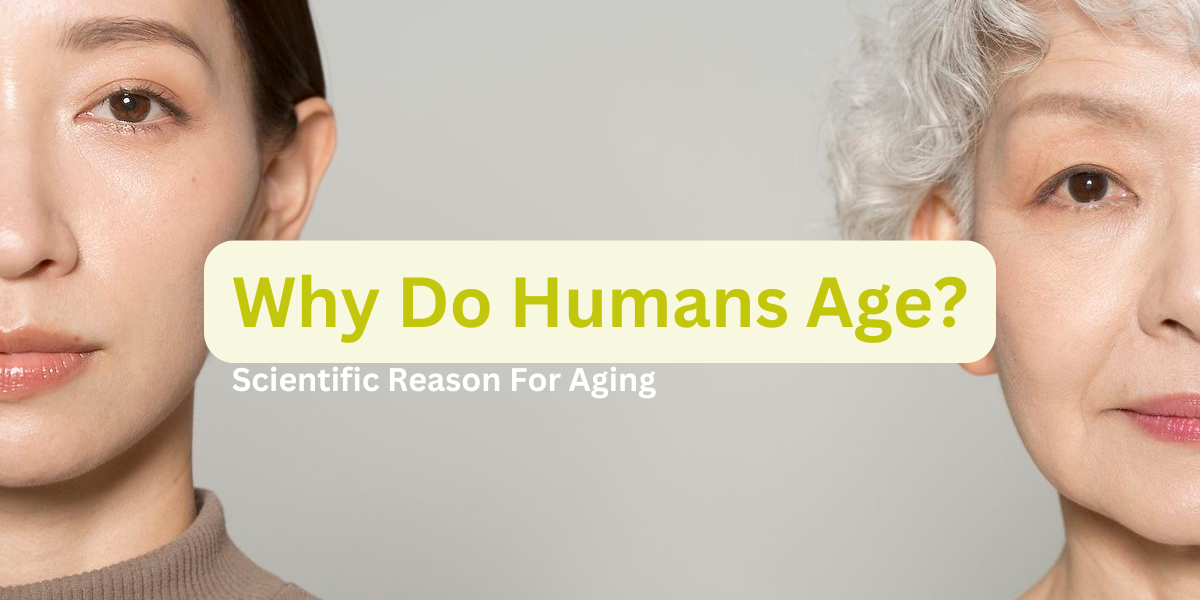Why do humans age? This question often comes in mind when we see our parents get aged. Although aging is an undeniable part of human existence. From the moment we take our first breath, the aging process begins, shaping our journey through life. It manifests visibly through gray hair, wrinkles, and frailty, but the true mechanisms occur deep within our cells. Understanding why humans age has fascinated scientists for decades. More than mere curiosity, this knowledge has the potential to unlock longer, healthier lives.
This article delves into the biological processes that cause aging, the role of our environment and lifestyle, and advancements in anti-aging science. By understanding these factors, we can better navigate the challenges of growing older while exploring possibilities for a longer and healthier future.
What Causes Aging? A Deep Dive into Cellular Processes
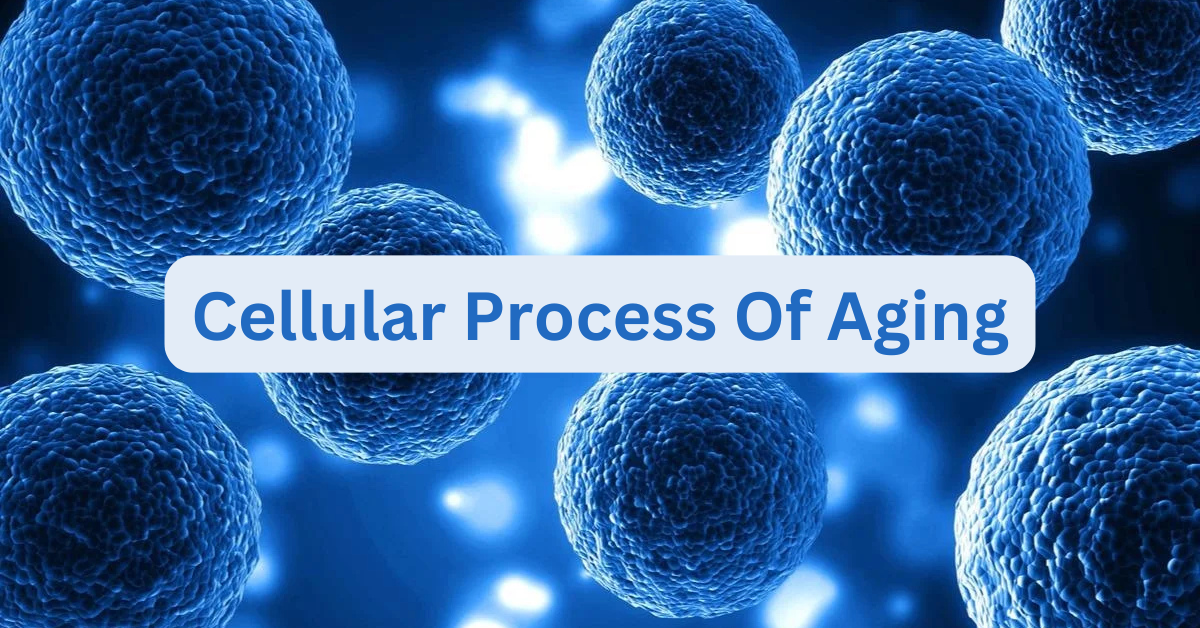
At its core, aging is the cumulative effect of cellular and molecular damage over time. To understand it fully, we must first look at our body’s smallest building blocks: cells. Cells perform vital functions, but their efficiency and ability to regenerate decrease as we age.
Cellular Damage and DNA Repair
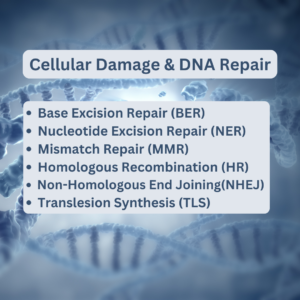
Every second, billions of cells in our body divide, grow, and repair themselves. However, with each division, errors can occur in the DNA replication process. These errors, compounded by exposure to external factors like UV radiation and toxins, result in DNA damage. Although our bodies have 6 types of mechanisms to repair damaged DNA i.e. BER, NER, MMR, HR, NHEJ, TLS, and MMR is mainly responsible for DNA repair while DNA replication process. But this process of DNA damage repair by all these mechanisms becomes less efficient over time, leading to aging and the development of age-related diseases.
Telomere Shortening: The Cellular Clock
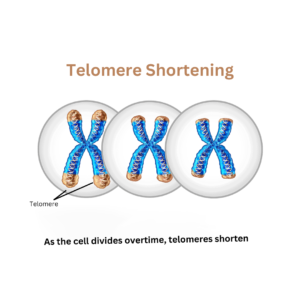
Telomeres are protective caps at the ends of chromosomes that prevent genetic material from unraveling. Each time a cell divides, telomeres become slightly shorter. When they become too short, the cell enters a state called senescence, where it stops dividing or dies. Telomere shortening is often referred to as the “biological clock” of aging.
Oxidative Stress and Free Radicals
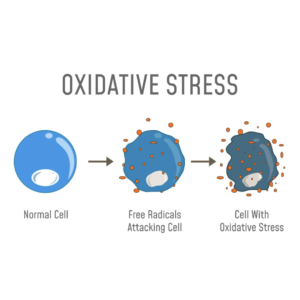
The byproducts of cellular energy production include free radicals, unstable molecules that damage DNA, proteins, and cell membranes. While our bodies produce antioxidants to neutralize free radicals, an imbalance—often caused by pollution, smoking, or unhealthy diets—leads to oxidative stress, accelerating cellular aging and increasing the risk of chronic diseases.
Cellular Senescence and Zombie Cells
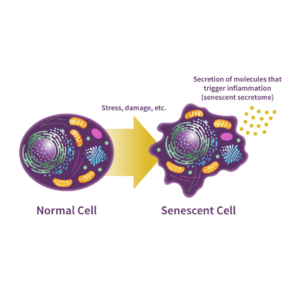
As cells age, some lose the ability to function properly but refuse to die. These “zombie cells” linger in the body, releasing inflammatory signals that damage neighboring cells. Cellular senescence contributes to tissue dysfunction, reduced regenerative capacity, and age-related diseases such as arthritis and cardiovascular disorders.
The Role of Genetics and Environment in Aging
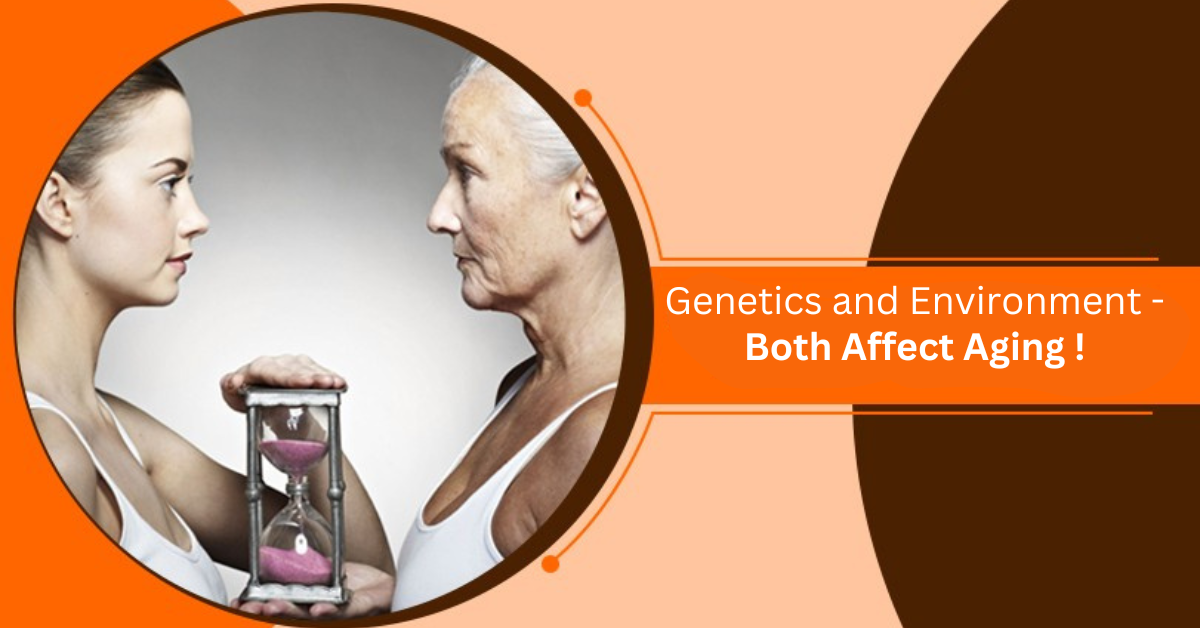
Aging is influenced by a delicate interplay between genetics and environmental factors. While genes determine about 20-30% of lifespan, lifestyle choices and environmental exposures play a significant role in how we age.
Genetics and Longevity
Certain genes influence how quickly we age. For instance, the Forkhead Box O3 (FOXO3) gene is associated with increased longevity and better stress response mechanisms. Conversely, mutations in specific genes can cause conditions like Progeria, a rare disease characterized by accelerated aging. Understanding the genetic basis of aging can pave the way for targeted therapies to delay its onset.
Environmental Stressors
The environment we live in profoundly affects how quickly we age. Factors such as pollution, UV radiation, and exposure to harmful chemicals contribute to DNA damage and oxidative stress. These stressors not only accelerate aging but also increase the risk of diseases like cancer and cardiovascular disorders.
Lifestyle Choices
Diet, exercise, and stress management significantly impact aging.
- Diet: Consuming a nutrient-rich diet filled with antioxidants and healthy fats can reduce oxidative stress, while excessive sugar and processed foods can hasten aging.
- Exercise: Physical activity improves circulation, boosts mitochondrial function (the energy-producing organelles in cells), and reduces inflammation, promoting cellular health.
- Stress Management: Chronic stress elevates cortisol levels, which accelerates cellular aging. Practices like meditation and deep breathing can counteract this.
Longevity: Unlocking the Secrets to a Longer Life
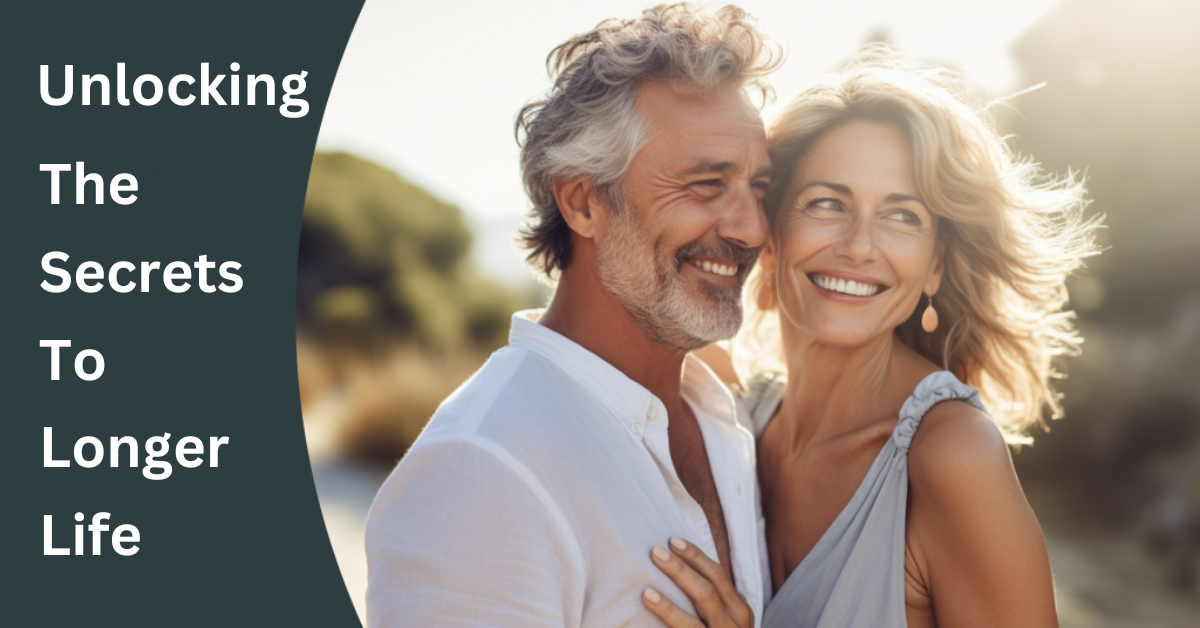
While aging is inevitable, its pace and impact can be influenced by science and lifestyle interventions. Researchers are uncovering secrets from nature and advancing technologies to help us live healthier and potentially longer lives.
Lessons from the Blue Zones
The Blue Zones—regions like Okinawa, Japan, and Ikaria, Greece—boast populations with extraordinary longevity. Common traits among their inhabitants include:
- Diets rich in plant-based foods and healthy fats.
- Regular physical activity integrated into daily life.
- Strong social connections and a sense of purpose.
Studying these communities offers invaluable insights into sustainable lifestyle practices that promote longevity.
Scientific Advances in Anti-Aging
Modern science is making strides in delaying or even reversing certain aspects of aging:
- Caloric Restriction: Studies show that reducing calorie intake without malnutrition slows metabolic aging and increases lifespan in animals.
- Senolytics: These experimental drugs target and remove senescent cells, reducing inflammation and potentially restoring tissue function.
- Epigenetic Reprogramming: By reversing epigenetic changes (chemical modifications to DNA that affect gene expression), scientists aim to restore youthful cell function.
Ethical Considerations in Longevity Research
As we inch closer to potential breakthroughs in extending human life, ethical questions arise. Should we prioritize lifespan over the quality of life? How do we ensure these advancements are accessible to all? Balancing innovation with ethical responsibility is crucial in the pursuit of longevity.
Conclusion
The aging process, while inevitable, is a complex interplay of cellular damage, genetic predispositions, and environmental influences. While we may not be able to halt aging entirely, understanding its mechanisms gives us the power to slow its effects and enhance our quality of life.
Adopting a healthy lifestyle, minimizing exposure to environmental stressors, and staying informed about scientific advancements are the keys to a longer and healthier life. The search for the fountain of youth continues, but the real secret lies in how we live today.
